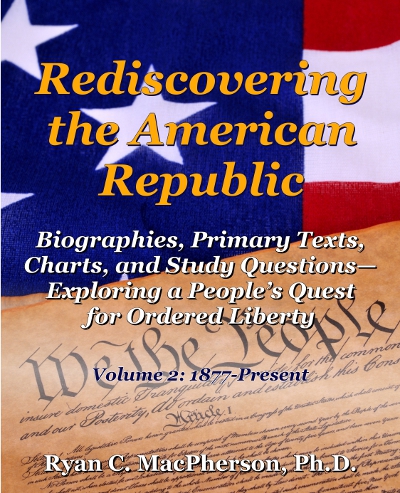Classical Lutheran Homeschool Core Curriculum Choices
(1st through 8th Grades)
A wealth of new curricula and resources for homeschooling has arisen in the past decade since my family began homeschooling. There are many excellent choices out there. You know your family and your needs best. Here is a list of our core choices for our family and the reasons for those choices. I hope it will serve as a resource to families who are just getting started, or for families who are looking for a change.
Home Devotions/Bible Reading:
-
Daily: Hausvater 4-Year Reading List with Order of Service from the Hymnal as a family
-
Weekly: Family Altar Board with catechesis, memory work, and hymnology based on the theme from Divine Worship on Sunday Morning
-
Personal daily reading of Scripture or Bible History book
Classical Considerations:
-
Aside from intentional devotions, most religious training happens organically during guided conversation in the car, at lunch, or while getting ready for bed (see Deuteronomy 6). In this way, parents can make use of Socratic questioning to guide children in a Biblical Worldview.
Notes:
-
We like to integrate the subject of “religion” into our family routine rather than our school routine because it is something that no one ever outgrows, even after graduation.
Math: Saxon (Saxon 1, 2, 3, 54, 65, 76, 87 or Algebra ½, Algebra ½ or Algebra 1)
Classical Considerations:
-
focuses on memorization of math facts and terminology prior to application
-
utilizes direct instruction and frequent, spiraling review sets
Notes:
-
Parent teaches levels 1-3 from scripted text; Child self-teaches levels 54 through Advanced Mathematics.
-
Each level spans between 110 and 140 lessons; we complete one level each school year by doing 5 lessons each week.
-
Assessments are offered every 5 lessons.
-
Several choices are available for DVD lessons aligned with the book.
- The 3rd edition in the higher levels avoids the Common Core written into the 4th edition.
Language: First Language Lessons (Grades 1-4)/Hake Grammar and Writing (Grades 5-8)
Classical Considerations:
-
teaches traditional English grammar through direct instruction (both)
-
employs grammar-level poetry memorization (FLL)
-
models diagramming with appropriate scaffolding (both)
-
includes extensive vocabulary and Greek/Latin root words (Hake)
-
teaches traditional writing and the five-paragraph essay for mastery (Hake)
Notes:
-
Parent teaches levels 1-4 from scripted text; Child self-teaches levels 5-8.
-
Each level spans between 80-120 lessons; we complete one level each school year by doing 3-4 lessons each week.
-
Consider adding poetry memorization to the Hake curriculum.
- FLL is mostly an aural curriculum. You may want to supplement or add activities if your child is more of a visual learner.
History: Story of the World (Grades 1-4)/Mystery of History(Grades 5-8)
Classical Considerations:
-
follows a cyclical four-year cycle, beginning in ancient times and ending with modern times (both)
-
includes quotations from primary sources (MOH)
Notes:
-
SOTW is not written from a Christian perspective and thus needs a Biblical worldview presented alongside, particularly with Biblical History and the Reformation.
-
MOH is written by a non-Lutheran, but attempts to present all Christian denominations fairly in that the author looks to the denomination’s own primary sources to explain their theology.
-
Each textbook can be covered in one school year. Plan to read three lessons each week and supplement with activities as desired.
-
Each curriculum comes with supplementary map-work for covering the subject of geography.
-
Consider supplementing with Notgrass American History if deeper understanding of American history is desired.
Other Recommendations:
Phonics: Teach Your Child to Read (Engelmann)
-
Direct-instruction is used.
Literature: 1,000 Good Books List
-
Read these aloud to your children and discuss them. Many are available for free at your library. Study guides are widely available.
Science: Answers in Genesis
-
These follow a four-year cycle and can integrate all grade levels to be taught at once. A Biblical worldview is taught.
Art: MaryAnn F. Kohl's Discovering Great Artists Books
-
These art projects look at master artists and follow in their footsteps.
Latin: A Primer of Ecclesiastical Latin
-
Great for upper-grades church-focused Latin. Instructor should clarify theology, as many sentences in the exercises display Roman Catholic doctrine.
Music: Piano Lessons (1st-8th Grades), Band (5th-8th Grades)
-
It is a beautiful thing to hone the ability to play music for pleasure and in the service of the church. By learning to play classical music, children grow in their ability to recognize goodness in music, as well as history about composers and musical eras. Also consider building a classical CD library for your home.


